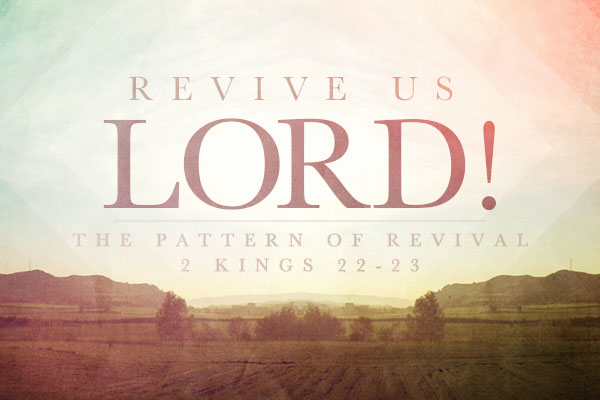Chapter 23 of Kings II features a fascinating discovery in the pages of the Bible. The chapter tells of King Josiah, king of Israel, who assumed the throne when he was only eight-years-old. The author notes that the king did “what was right in the sight of the Lord, and walked in all the way of his father David; he did not turn aside to the right or to the left,” (II Kings. 22:1-2 NRSV). On the 18th year of his reign, Josiah ordered his secretary, Shaphan, to go to the Temple to command the high priest Hilkiah to distribute the Temple’s funds among the workers.
When Shaphan did so, Hilkiah went to count the sum of the treasures in the Temple. All of a sudden, the priest came across the book of the law, which had been presumably lost until this point. The book likely contained either the Mosaic Pentateuch or a latter collection of Moses’s statutes and ordinances. The book was likely known to the Hebrews, for Hilkiah claimed to have “found the book of the law,” (22:8). When the Temple’s wealth was distributed among the workers, Shaphan informed Josiah of the book of the law found in the Temple by Hilkiah, reading it aloud before him.
Upon hearing its contents, King Josiah immediately “tore his clothes” in repentance and ordered the high priest to “Go, inquire of the Lord for me, for the people, and for all Judah, concerning the words of this book that has been found; for great is the wrath of the Lord that is kindled against us, because our ancestors did not obey the words of this book, to do according to all that is written concerning us,” (22:13). Eventually, Josiah was convicted by the examination of the lost Scriptures, leading him to rouse the religious authorities to reform the Hebrew religion.
The reforms initiated by Josiah’s command were directed towards the entire people of Judah. As the verse reads “All the inhabitants of Jerusalem, the priests, the prophets, and all the people, both small and great; he read in their hearing all the words of the book of the covenant that had been found in the house of the Lord,” (23:2). The religious reforms included making a covenant before God, vowing to keep His commandments, decrees, statutes, and performing all commands within the book of the law. Additionally, “all the people joined in the covenant.”
Evidentially, the people strayed away drastically from the laws and statutes implemented across Israel, seen in the king ordering all of the vessels made for Baal, Asherah, and various gods which existed in the Temple brought out and burned, with their ashes to be carried to Bethel (v.4). The idolatrous priests who refused to abide by the religious reforms were deposed; in fact, there was even a social aspect of these decrees. The houses of prostitutes within the Temple were broken down, and all of the lands influenced by Israel’s paganist-polytheistic neighbors were desecrated and broken down. “He broke the pillars in pieces, cut down the sacred poles, and covered the sites with human bones,” (v.14).
In the long run, countless innovations on the Hebrew faith became evident as Josiah’s issued religious reformation, from the destruction of pagan altars within Judah’s borders to the burning of bones which inhabited the tombs of supposedly “sacred” mounts. Furthermore, “he slaughtered on the altars all the priests of the high places who were there, and burned human bones on them. Then he returned to Jerusalem” (v.20).
The king also ordered the reinstitution of the Passover as prescribed in the Torah. A verse from the book says, “No such Passover had been kept since the days of the judges who judged Israel, even during all the days of the kings of Israel and of the kings of Judah; but in the eighteenth year of King Josiah this Passover was kept to the Lord in Jerusalem,” (vv.22-23). After the Passover, any Hebrew medium—wizard teraphim, idol, or other forms of abomination—was put away by Josiah, “so that he established the words of the law that were written in the book that the priest Hilkiah had found in the house of the Lord. Before him there was no king like him, who turned to the Lord with all his heart, with all his soul, with all his might, according to the law of Moses; nor did any like him arise after him,” (v.25).
Thus, God applauds the narrative of the religious reformation which Joshua carried out. Specifically, God said, “Because your heart was penitent, and you humbled yourself before the Lord… I will gather you to your ancestors, and you shall be gathered to your grave in peace,” (22:20). This story tells us that religious reformation is as necessary in the Old Testament as it is today. When the Scriptures become hidden and lost from the Church, we begin to acquire the same corruption which characterized Judah under Josiah’s reign. Therefore, the prophet must be able to recover God’s statutes and reform God’s religion accordingly.
Don’t miss out on our LIVE conference call as we discover learn about being the Prophet in the Marketplace. Here are ways to join:
1) Call 515-604-9266
2) Go to startmeeting.com, and use the login: BishopJordan
What has your quiet time been telling you to do or to reform?

